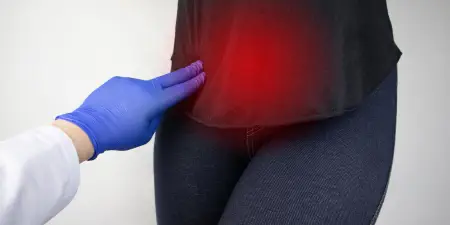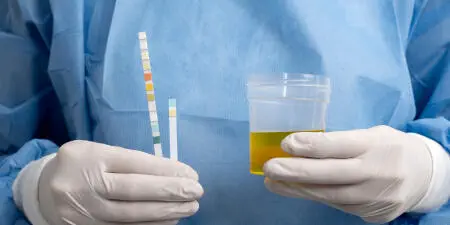Urinary Incontinence

Conquering Incontinence With the Right Care
Urinary incontinence is more than just a minor inconvenience. Whether it is an occasional leak while coughing or sneezing or an unexpected, uncontrollable urge to void the bladder, urinary incontinence is a common condition, especially among older adults.
However, it is essential to understand that incontinence is not an unavoidable part of ageing. It is easily curable with the proper medication, lifestyle changes, pelvic floor exercises and other treatment modalities.
If urinary incontinence impacts your everyday life, do not hesitate to act. Dr. Aarthy P is dedicated to providing comprehensive care and tailored treatments to help you regain bladder control. She is a leading urologist doctor in Chennai, renowned for her effective strategies in treating urinary incontinence.
Trust Dr. Aarthy’s expertise. Your path to relief is just a consultation away.
Urinary Incontinence: Causes & Symptoms
- The Causes
- The Symptoms
These temporary causes usually resolve with treatment:
- Urinary Tract Infections (UTIs) leading to frequent bladder voiding.
- Pressure on the bladder caused by the foetus in the uterus.
- Weakened bladder control due to chronic constipation.
- Increased intake of beverages like coffee and alcohol.
- Side effects caused by antidepressant and diuretic medications.
Chronic reasons for incontinence:
- Poor bladder function as a result of weak muscles due to pelvic floor disorders.
- Excessive urine output and leakage for persons with Diabetes.
- Benign Prostatic Hyperplasia or enlarged prostate.
- Damage to sphincter muscles due to prostate cancer surgeries.
- Loss of bladder control due to neurological conditions like Stroke and Multiple Sclerosis.
- Weakening of the bladder muscles due to hormonal changes during menopause.
The main symptom of urinary incontinence is the involuntary leakage of urine due to several reasons, depending on the type of incontinence. Persons with urinary incontinence may also experience:
- Stress incontinence is urine leakage during activities that pressurise the bladder, such as exercising, coughing, or sneezing.
- Urge incontinence is the sudden, intense urge to void the bladder, often followed by an involuntary leakage of urine. It is often caused by infections, neurological disorders, and diabetes.
- Mixed incontinence is a combination of stress and urge incontinence.
- Functional incontinence occurs when a person has physical hurdles, like severe arthritis or mental impairments that hinder timely access to the restroom or affect their clothing adjustments.
- Overflow incontinence is characterised by the frequent dribbling of urine caused by a bladder that hasn’t fully emptied.
Treating Incontinence: Unlocking Solutions With Accurate Diagnosis
Dr. Aarthy P believes in the power of personalised medicine. She relies on thorough diagnosis to uncover the root cause of your urinary incontinence and to deliver customised and precise care tailored just for you.
Overcoming Incontinence: Treatments for Sustained Relief

Lifestyle Changes
Kegel exercises for pelvic floor muscles, bladder training, reducing caffeine consumption, managing fluid intake, and utilising pads to control leakage are ideal for less severe cases.
Medications
Management of moderate incontinence with medications that target bladder overactivity or enhance bladder muscle function.
Surgical Procedures & Techniques
When medication and lifestyle modifications fail to rectify the issue, Dr. Aarthy may suggest surgery. Invasive techniques and surgical treatment for severe cases may involve:
- Use of Bulking Agents
Injecting bulking agents to strengthen and support the urethra.
- Botox Injections
Mode of treatment for urge incontinence to relax the bladder muscles.
- Sling Procedures
Surgical treatment to treat stress incontinence by placing a sling under the urethra for additional support.
- Neuromodulation
Stimulation of the nerves using pacemakers to enhance bladder control.
- Artificial Urethral Sphincter (AUS)
Device for men to control urinary incontinence after prostate surgery.
Regain Bladder Control: Consult Dr. Aarthy Today









